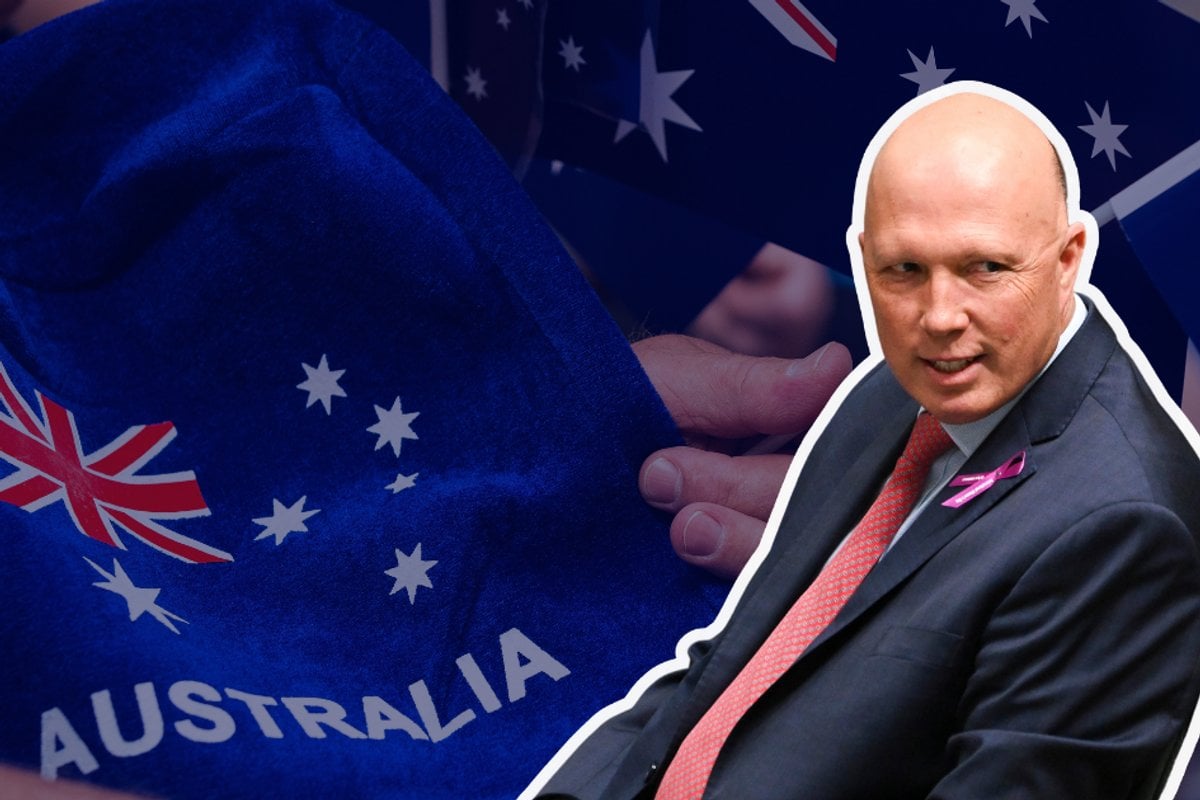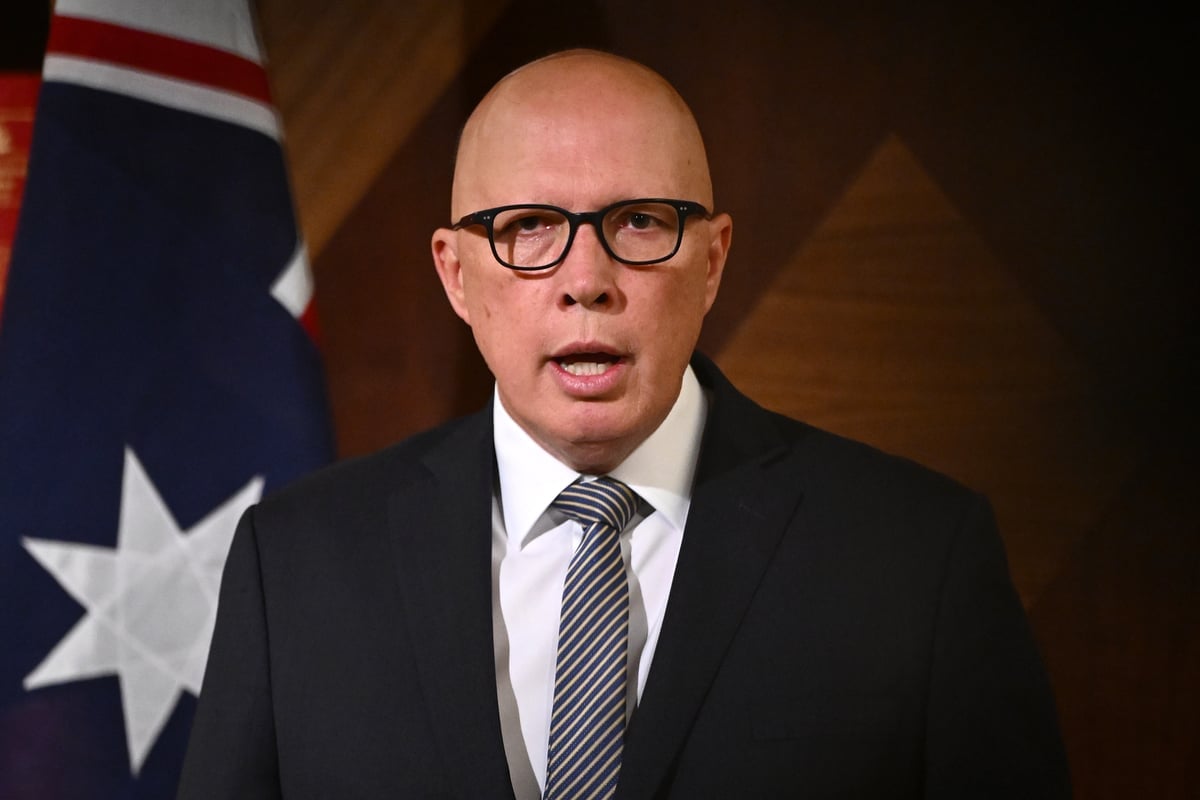
Peter Dutton is mad. Incensed. Outraged.
Yes, he has had a week.
You see, for decades, many Australians have headed to their local supermarket or retail department store to stock up on all things Australiana ahead of January 26.
Their shopping carts brimming with cheap paraphernalia - T-shirts, thongs, stubby holders and temporary tattoos all emblazoned with the Australian flag, or painted green and gold.
But recently, the tides have been slowly but surely evolving. Our public holiday marking all things "Aussie Aussie Aussie, Oi Oi Oi" is no longer the day of alcohol-fueled celebration that it once was. At least not for all.
This week, Woolworths announced they will no longer be selling 'Australia Day' merchandise following a decline in demand. The reaction was evenly two-sided, with some excited for the change, others not so much.
Then Opposition Leader Peter Dutton entered the chat.
Watch: Changing the date, with Narelda Jacobs. Post continues below.
It began when Woolworths said Australian flags would remain available at its subsidiary Big W year round, but additional Australia Day-themed merchandise would no longer sit on store shelves in Big W or their grocery stores.


Top Comments